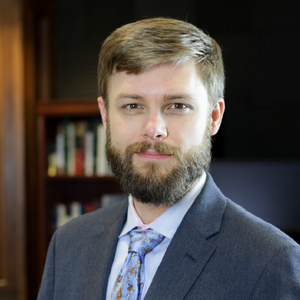Law & Principles
Trent England | October 28, 2015
What the Electoral College Can Teach Us About the Constitution
Trent England
The constitutional process for presidential elections is often misunderstood. That is unsurprising, since many of the Framers were at first unsure how it would work. Yet the history of the Electoral College—both its origin and its operation—offers lessons about the Constitution and how to defend it.
Principles vs. Pragmatism? The men who made the Constitution were both profoundly principled and fiercely pragmatic. Principles answer the question “Why?” but not “How?” The Framers considered many proposals before agreeing on the final language of Article II, Section 1, of the Constitution. The Electoral College gives the people a voice through state legislatures, which are empowered to decide how best to represent their own state in presidential elections. It is the Framers’ practical design to create both accountability and independence in the executive branch, in order to uphold and perpetuate what James Madison called “republican principles.”
Discovery or Invention? Thomas Jefferson was quick to disclaim invention when asked about the Declaration of Independence. Rather, he said, it stated “the common sense of the subject” and “the harmonizing sentiments of the day.” Probably the most inventive work of the Founders was the Articles of Confederation, which was based on political theorizing and failed. In the Constitution, the Framers returned to “experience”—their own and what they gathered from their intense studies of history—as “the oracle of truth.” The Electoral College is a part of the system of states, known as federalism, that the Framers arrived at after disregarding political theorists and relying instead on their own practical experience.
Our Role as Discoverers. What is remarkable about the Electoral College is that, over time and with just one slight change made by the Twelfth Amendment, it has worked even better than the Framers expected. Our state-based method of conducting a national election has forced candidates and their political parties to build more national and inclusive coalitions than would be otherwise necessary. Election fraud has been contained to individual states. Never has a nationwide recount been necessary. Every generation of Americans has a duty not merely to understand the Constitution and to obey it, but to learn from our experience and history.

Trent England
David and Ann Brown Distinguished Fellow
Trent England is the David and Ann Brown Distinguished Fellow at the Oklahoma Council of Public Affairs, where he previously served as executive vice president. He is also the founder and executive director of Save Our States, which educates Americans about the importance of the Electoral College. England is a producer of the feature-length documentary “Safeguard: An Electoral College Story.” He has appeared three times on Fox & Friends and is a frequent guest on media programs from coast to coast. He is the author of Why We Must Defend the Electoral College and a contributor to The Heritage Guide to the Constitution and One Nation Under Arrest: How Crazy Laws, Rogue Prosecutors, and Activist Judges Threaten Your Liberty. His writing has also appeared in the Wall Street Journal, USA Today, Washington Times, Hillsdale College's Imprimis speech digest, and other publications. Trent formerly hosted morning drive-time radio in Oklahoma City and has filled for various radio hosts including Ben Shapiro. A former legal policy analyst at The Heritage Foundation, he holds a law degree from The George Mason University School of Law and a bachelor of arts in government from Claremont McKenna College.